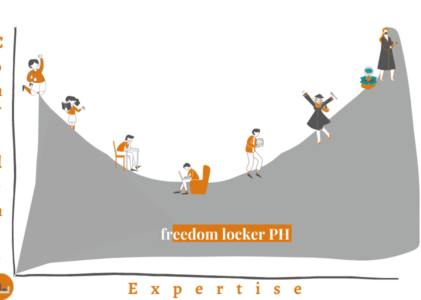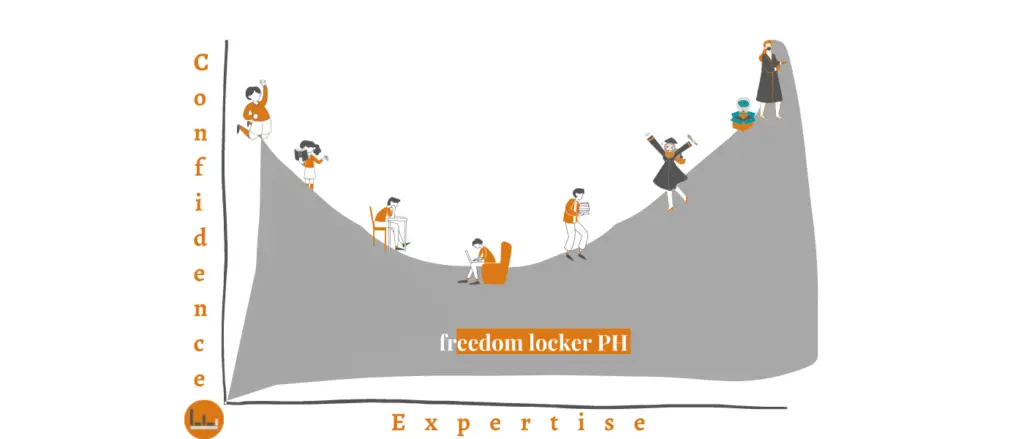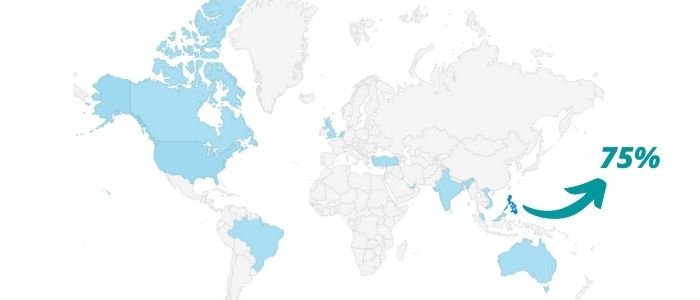Some money tips get lost in translation. Others are just blatantly altered and ridden on by mischievous characters. And so we often end up with unconventional money tips that, in fact, ought to be the convention anyway.
That was my biggest takeaway from last month’s survey of a Filipino community of investors on Reddit — PHInvest (r/phinvest).
Page Contents
What is PHInvest
PHInvest is a subreddit (a community in Reddit) “For Filipinos interested in stocks, bonds, mutual funds… and any other topic related to investing money, making money, or growing money in the Philippines.” It currently has 85,000 members with around 1,000 online at any given time.
I joined the PHInvest subreddit looking to promote freedom locker PH but found myself growing a certain affinity to the community. It’s a community for beginners and experts looking to help beginners.
You can join the community here: https://www.reddit.com/r/phinvest/
(Update: Fair warning, there are grossly incorrect takes by some posters — the noisy 1%. And the worst thing is they’re absolutely convinced they’re correct. That’s a dangerous mindset for anyone to be in. See Sapiens.)
Should you trust recommendations on PHInvest?
We can never rid ourselves of a few bad apples but, for the most part, the recommendations on this subreddit have been good. A lot better than countless Facebook groups, that I can say.
But to be clear, not every recommendation will fit your needs, nor will they be conceptually correct every time.
Your circumstances are unique. Risk tolerances, the amount in reserves, knowledge, and more… all these things matter when it comes to fit.
As for accuracy, participants on PHInvest will follow a chart of the Dunning-Kruger effect.
The participants will be a spectrum of avatars:
- Beginners looking to better themselves
- Moderately proficient people who think they know everything
- Experts who understand they know very little
And that goes for any platform, I think. Recommendations will be based on skill and bias. Everyone has biases — I have mine — and it’s always best to see a holistic picture.
Survey says
With the holistic picture goal, I surveyed the community asking this question:
Share something about personal finance/investing that you believe but most people disagree with.
You can find the results here: Share something you believe that most people disagree with
Here’s the premise of the idea, one that I got from John Lee Dumas’ podcast, Entrepreneurs on Fire*: People disagree on a lot of things and it is in the public’s best interest to see the totality and have them decide for themselves.
PHInvest is no authority site, but with thousands of eyes upvoting and downvoting good and bad comments, respectively, it usually leads to sound takes.
Here are the top 6 responses based on the number of upvotes from the community.
(*He asks a similar question, but not exactly this.)
Top 6 (79 upvotes) by MooseFandango
Oooh. I like this. Off the top of my head. (1) People care too much about small fees (ex. Always using the 8k rule, interbank transfer fees, etc.). (2) Side hustles are a waste of time, energy & resource; it’s better to focus your effort on your day job and do it well enough to get promoted while keeping your sanity at home. People who tell others that trading markets is a path to financial freedom are full of BS.
MooseFandango
I pretty much agree with everything. The 8k rule comment caught my eye. So I did a little digging and came up with my take on the rule. (See The 8k Rule is Misused: New 7% Rule for PSE Stock Market Investing.)
The take on side hustles though was probably misunderstood by some. Here’s what I think.
It is when we spread ourselves out too thin that side hustles detract from actual productivity. Successful people know their bread and butter, and they double down on those. They don’t try to be the jack-of-all-trades.
Some side hustles lead nowhere. I’d argue, rather than take an online survey that pays a few cents, why not read a book? I mean, sure you could do both, especially when it only takes away from mindless social media scrolling. But it’s an activity that isn’t scalable nor profitable. And I’m all for mindset shifts that focus on wealth-building actions.
But for sure, some side hustles actually turn into profitable full-time ventures. So go for your side hustle if you see it becoming your bread and butter.
Top 5 (80 upvotes) by Remarkable_Bet8414
Technical analysis only works because people believe that it works. Investagram has become a breeding ground for market manipulation and half of them don’t even know it. Being a business owner is not for everyone. There is nothing wrong (with) being an employee and for some might be a better choice.
Remarkable_Bet8414
The point about being a business owner is important. I personally think entrepreneurship is important for financial freedom. I think being tied to a job is something we all can move away from. But I also recognize that entrepreneurship isn’t for everyone. And that’s not a bad thing.
It’s not for everyone, but it’s also a choice anyone can make. I mean if I, a highly risk-averse person (at least I used to be), made the switch, then I think anyone can. I list down my top 10 tips for people who want to at least give it a shot: Is Entrepreneurship for Everyone? (10 Tips to Make the Switch)
Top 4 (87 upvotes) by gawakwento
Starting your own business thinking you’d have better control of your time. Man, you(‘re) about to learn the hard way.
gawakwento
So if you do decide to become an entrepreneur, know that it’ll mean more work! It’ll mean alarming problems first thing in the morning, dishonest employees, cut-throat competitors, and so on.
Is it worth it? I think so. Come to think of it, you’re going to go through difficult times when trying to achieve anything worthwhile — whether it’s from your business or a job. This quote sums it up:
Being BROKE is hard; being RICH is hard. Obesity is hard; STAYING FIT is hard. Being in DEBT is hard; being FINANCIALLY DISCIPLINED is hard. EMPLOYMENT is hard; ENTREPRENEURSHIP is hard.
Life will never be easy. It will always be hard. But we can choose our hard. Pick wisely.
(Related: Choose Your ‘Hard’)
Top 3 (94 upvotes) by rcpogi
Paid mentorship is a scam business
rcpogi
Now, I wouldn’t go so far as to say every paid mentorship is a scam. It’s not hard to imagine credible mentors who might do it for the right economic incentives. (If the fees and/or indirect benefits add up to be more than what they make.) But I understand the intent.
The world is filled with fake gurus. Really, even large net-worth individuals can belong to this group. How much of their portfolio is really from seminars, self-help books, and the like?
It can be tough to know for sure, but here are some guidelines for spotting fake gurus and financial freedom scams.
Top 2 (100 upvotes) by SteveGreysonMann
1. Stop worrying about (the) interest rates on digital banks. Everyone’s rates will come down eventually. If you want to beat inflation, you need to take a risk. 2. TA is as good as guessing. It’s not a science at all. You might be increasing your odds of guessing right, but there is still a chance you’re wrong. 3. Investing is supposed to be boring. If you see euphoria like your FB friends who didn’t give a shit about investing a month ago posting monumental gains, that’s a sell signal. 4. Being ultra frugal sucks. Save, invest, but enjoy your money too.
SteveGreysonMann
I’d like to specifically highlight numbers 2 and 3. Trading is exciting and investing is boring. That’s exactly right.
I used to work in finance… did pretty good, if I say so myself. I even taught myself to code in Python for algorithmic trading. Market news consumed my mornings and spreadsheets flooded my screens.
It was fun and I’m not discouraging anyone from trading. But if I gave my younger self advice, it would be to leave it in an index and focus on things that actually matter — lasting skills, business growth and stability, and family.
(Related: Make Money Trading Stocks? The Advice You Didn’t Want to Hear)
Top 1 (169 upvotes) by Flucky931
A majority of people (maybe 80%) are better off spending time on increasing income (i.e. upskilling, changing field(s), migrating, etc) than focusing on optimal investing.
Flucky931
It’s easy to shift focus. After all, it is a community about investing. But what gets lost is prioritization.
Developing skills trumps asset allocation. The income you bring, in business or work, will be equal to the value you give. And that means upskilling to increase income.
Did the community get it right? Is there something about finance/investing you believe in but most people disagree with? Let me know in the comments.









